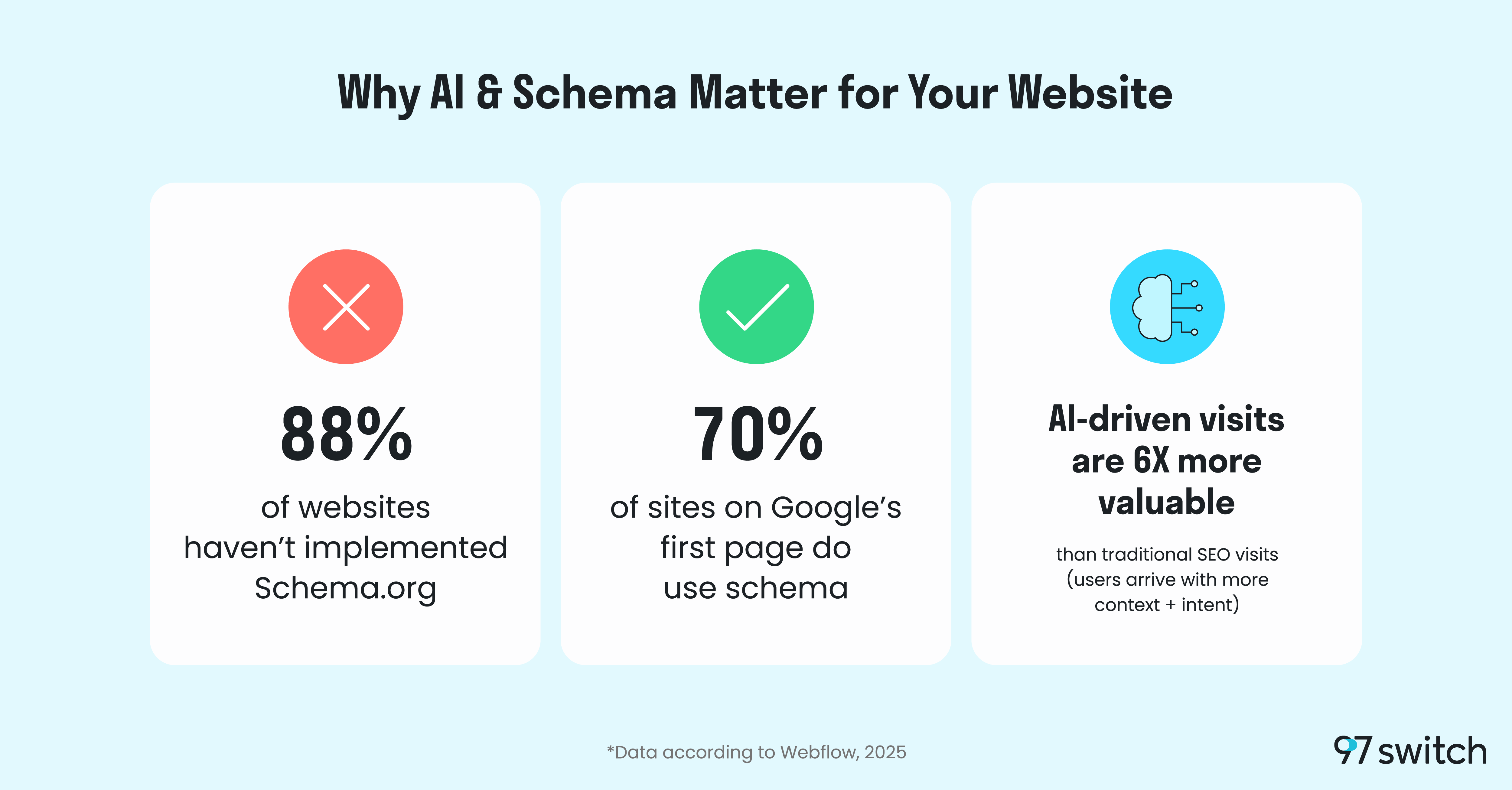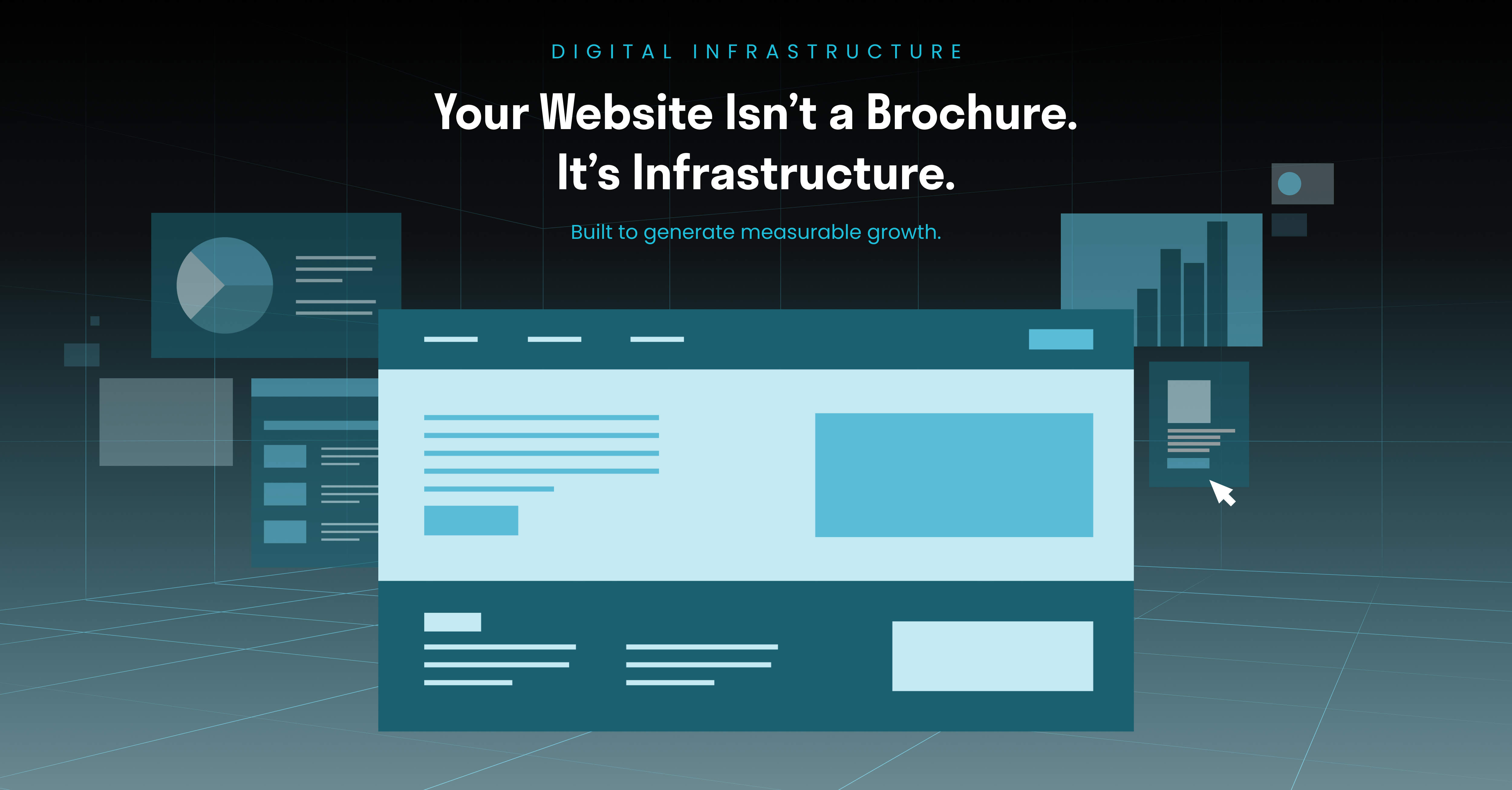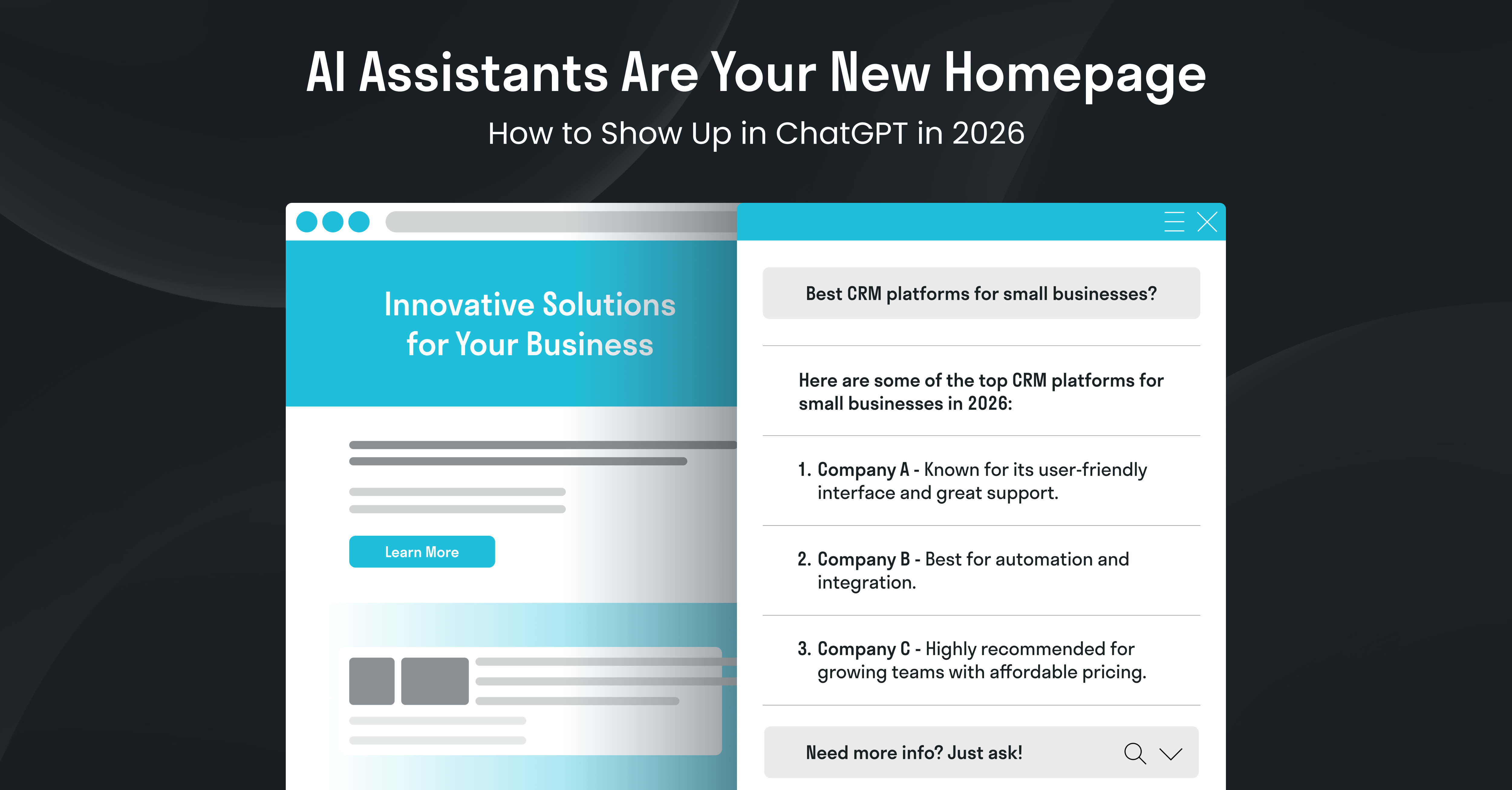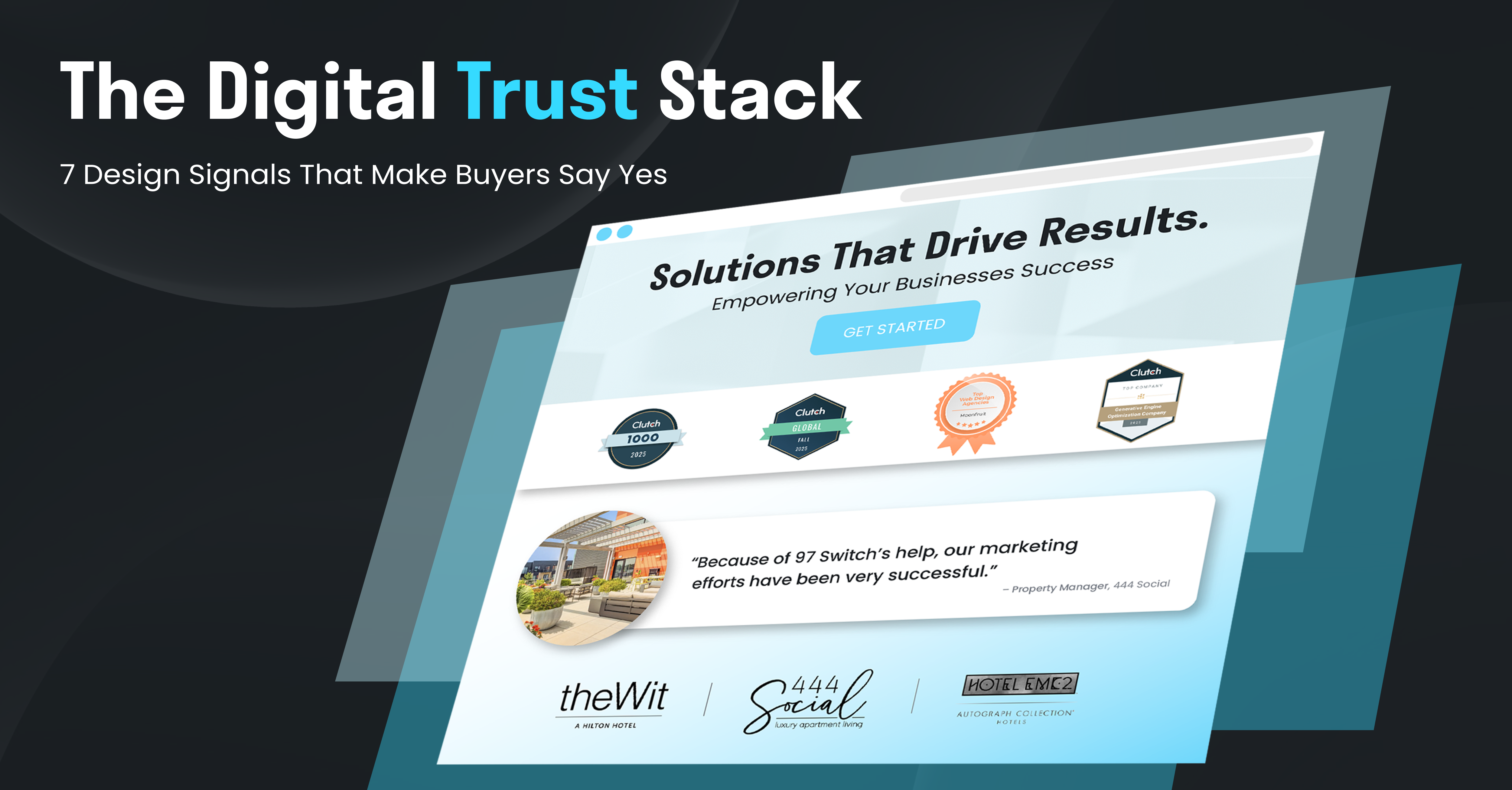The search landscape is changing fast. Traditional SEO is still the foundation of digital visibility, but new frameworks like Generative Engine Optimization (GEO) and Answer Engine Optimization (AEO) are shaping how businesses appear online in an AI-driven world.
Some stats from a recent Webflow webinar really stood out:
- 88% of websites haven’t implemented Schema.org
- 70% of sites on Google’s first page do use schema
- AI-driven visits are 6x more valuable than traditional SEO visits (users arrive with more context + intent)
These numbers highlight just how much opportunity is being left on the table. Schema helps search engines understand your site’s content better, while GEO and AEO ensure you’re positioned to win in AI-driven and answer-driven search.
The Takeaway
SEO remains essential, but the modern playbook must expand:
- Implement schema to strengthen your foundation.
- Adapt content for answer-driven experiences.
- Plan for generative engines that will increasingly guide how people discover brands.
At 97 Switch, we’re helping businesses build clear roadmaps to future-proof their digital presence—covering SEO, schema, and AI-driven strategies.
FAQ: Schema, GEO, and AEO
Q1: What is Schema.org and why does it matter?
Schema.org provides structured data that helps search engines better understand your website’s content. This often leads to rich snippets (like reviews, FAQs, or events) that make your listings more visible and engaging in search results.
Q2: How is AEO different from SEO?
SEO is about optimizing your site for search engines. AEO (Answer Engine Optimization) is about optimizing for answers, ensuring your content surfaces directly in AI-driven responses and knowledge panels—often before a user even clicks through to your site. AEO builds off SEO, and Webflow has said “AEO is what SEO should have always been.”
Q3: What is GEO and how does it impact my business?
GEO (Generative Engine Optimization) focuses on preparing content for AI-powered search engines (like ChatGPT, Perplexity, or Google’s AI overviews). These engines generate answers dynamically, so your content strategy needs to be clear, structured, and easily understood by AI.
Q4: Does implementing schema guarantee first-page rankings?
No single tactic guarantees rankings. Schema increases your chances of enhanced visibility and better positioning in both traditional and AI-driven search, but it works best as part of a broader SEO + AEO strategy.
Q5: Where should I start if my business hasn’t implemented schema yet?
Start small by adding schema to high-value pages like your homepage, services pages, or product listings. From there, expand into FAQs, reviews, and blog content. Partnering with an agency can make implementation and testing much smoother. Contact us to learn more.
About the Author
Jeremy Greenberg is the founder of 97 Switch, an award-winning digital marketing agency that helps mid-market and enterprise companies turn digital strategy into measurable growth. He partners with organizations in real estate, hospitality, SaaS, and beyond to align brand, marketing, and technology into powerful, results-driven experiences. Recognized by Clutch, UpCity, and dozens of 5-star reviews, Jeremy leads his team with a focus on precision, care, and long-term partnerships. Based in Portland, he enjoys running and exploring local trails when he’s not helping companies grow through digital innovation.






